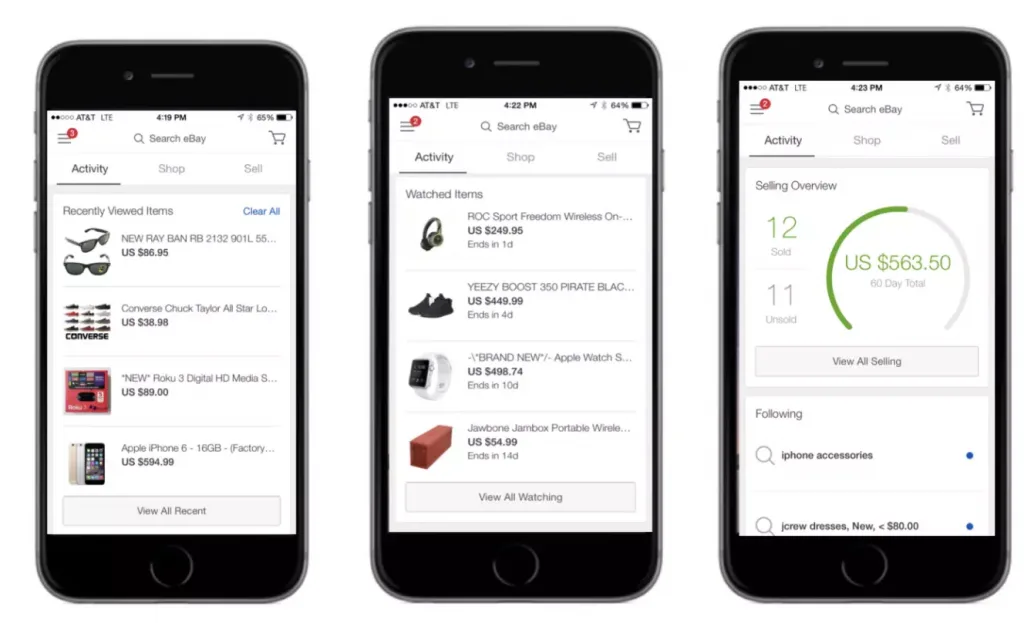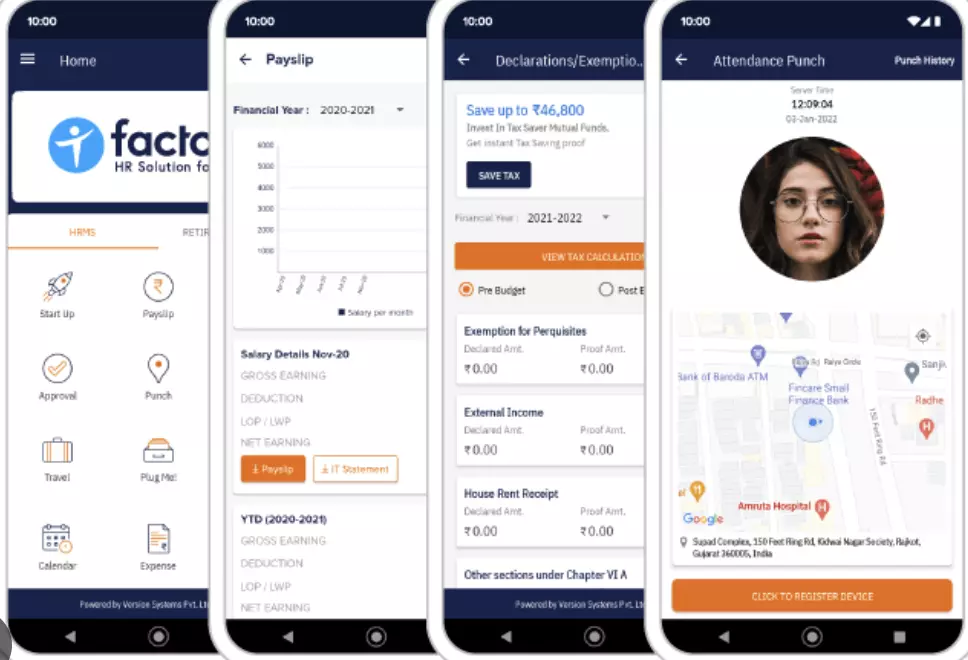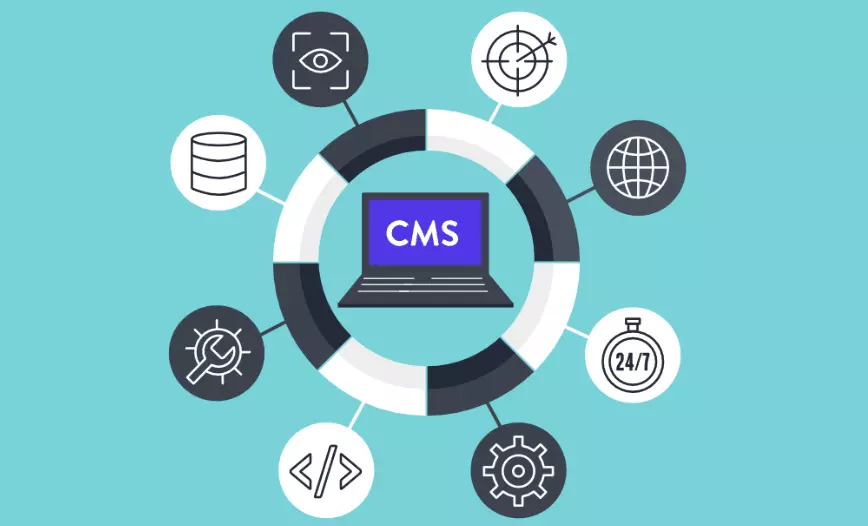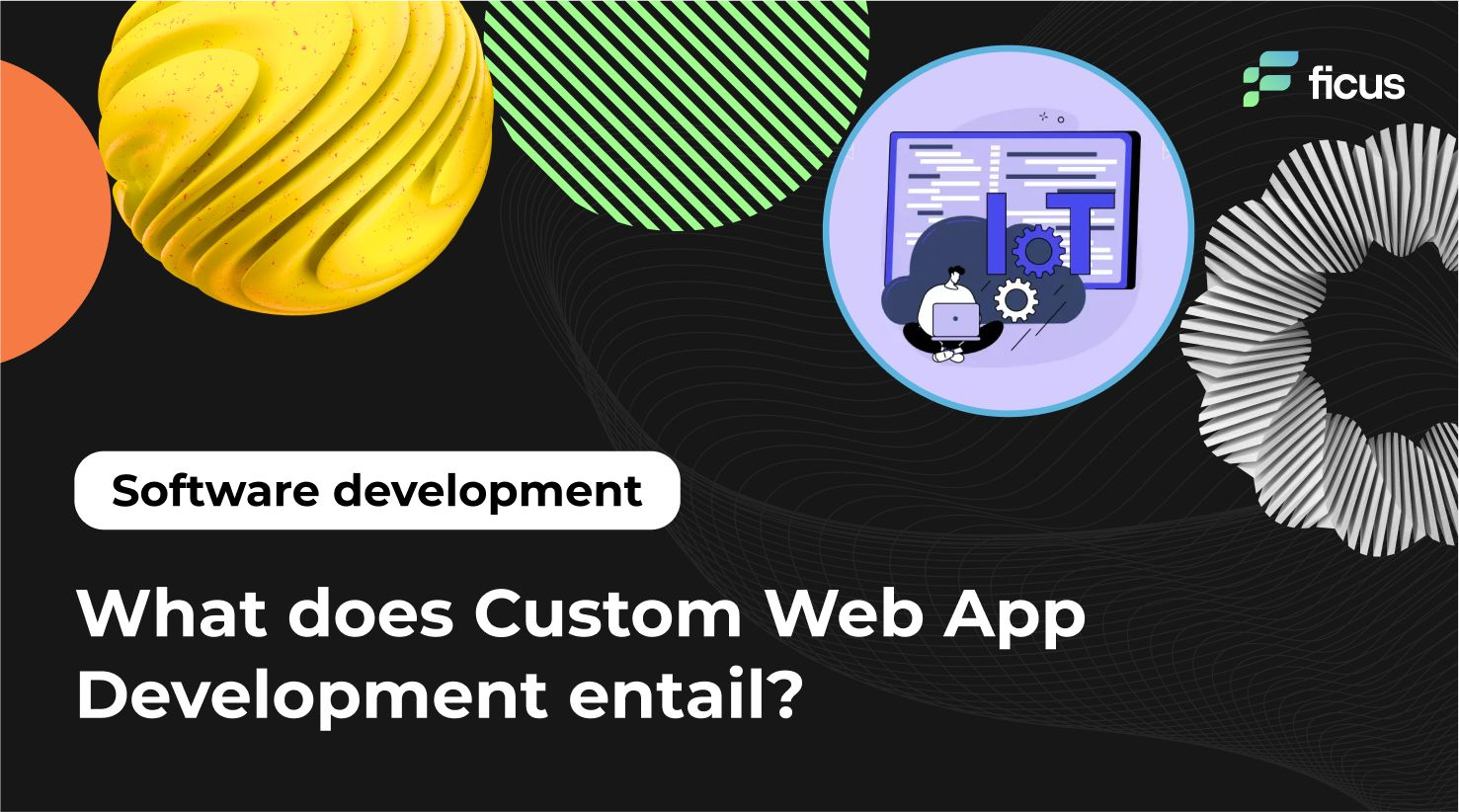Businesses increasingly recognize the strategic imperative of adopting customized solutions to meet their unique operational demands. Custom web application development has emerged as a pivotal component in this strategy, allowing businesses to build applications tailored precisely to their needs, enhancing efficiency and user engagement.
Industry experts underscore the importance of custom solutions, emphasizing the limitations of generic software in addressing specific business challenges. As highlighted in a comprehensive guide on custom web application development, these bespoke applications allow companies to integrate features and functionalities that align perfectly with their objectives, a capability that off-the-shelf software often needs to improve.
Furthermore, the distinction between web application development and traditional software development is critical in understanding the value of customization. Unlike general software, web applications are built to operate seamlessly within the browser, offering a more flexible and accessible solution for users, particularly in business environments where rapid deployment and scalability are paramount, according to Quora.
Ficus will dive deep into custom web application development—where innovation meets precision. Discover how tailored web solutions can propel your business forward, outpacing generic software with unmatched functionality and strategic edge. In this article, we’ll break down the essentials, from understanding the process to harnessing the benefits of custom-built applications and why they’re the future-proof answer to your business needs.
- Custom web apps enhance operations and user experiences for businesses.<br>
- The web app development process involves planning, development, testing, and maintenance.
- Ficus Technologies offers expertise in custom web app development solutions.<br>
The Strategic Importance of Custom Web Solutions for Modern Businesses
The advantages of custom web application development extend beyond mere functionality. By leveraging a tailored approach, businesses can create applications that meet current demands and adapt to future challenges. This adaptability is particularly crucial in a rapidly evolving technological landscape, where the ability to integrate new technologies like AI, low-code platforms, and advanced data management systems can significantly enhance a company’s competitive edge.Moreover, web application architecture plays a vital role in their effectiveness. A well-structured web application is designed with performance, security, and user experience in mind, ensuring that it delivers value to the business and its users. Understanding the intricacies of web application architecture is essential for any company looking to develop customized solutions that are both robust and scalable.

Selecting the Right Development Partner
Choosing the right custom web application development enterprise is crucial to the success of any project. A reputable development partner will offer custom web app development services to address your business’s unique requirements. This includes the technical aspects of development, ongoing support, and optimization to ensure the application continues to meet your needs as they evolve.
Leading companies approach custom web and mobile app development, offering innovative and practical solutions. They bring together a team of experienced developers who understand the importance of integrating cutting-edge technology with business objectives, ensuring that the final product is functional and strategically valuable.
By focusing on tailored solutions that align with business goals, companies can unlock new levels of efficiency and innovation and position themselves for sustained success.
Ready to Transform Your Vision into Reality? Let’s Connect!
Contact UsComponents of Custom Web Application Development: Insights and Analysis
Precision and Strategy in Custom Web Applications
Nothing is worse than having a method that is not precise and a vague strategy in custom web applications.
Take, for instance, a situation where a company is engaged in an explosively growing e-commerce business. Initially, the company used package software to control its processes and operations. Although helpful in responding to a demand, the weaknesses of this type of application became a problem: Applications with well-defined skills, security flaws, and unfriendly user interfaces did not promote growth.
The solution? We moved to developing our web applications. Choosing a custom application ensured that a system perfectly synchronized with the already established networks would be implemented, efficiency would improve, and security would be thoroughly ensured. This step addressed today’s issues and put the proper framework for future developments in a way that competitors locked on an orthodox model of enterprise software could not emulate.
Custom vs. Off-the-Shelf: Critical Considerations
When evaluating whether to invest in custom web app development or stick with off-the-shelf solutions, consider these strategic questions:
- Do you have specific business requirements rather than those that generic software can satisfy? Ready-made solutions are developed for average utilization and do not suit the business’s particular needs.
- Do you consider expanding the system to accommodate the ad hoc requirements of a growing organization? Custom web apps are built to grow your business; thus, your digital tools will always be able to accommodate it.
- To what degree is data security important in your organization? Business-critical customization of web applications provides more robust security measures exclusive to your organization, reducing vulnerability to breaches by a vast amount.
When considering such factors, custom-made solutions have usable features that generic Software may not possess: flexibility, scalability, and security. You need to consult with a preferred custom web application development firm to know how customized solutions could suit the existing difficulties. To understand how tailored solutions can address your unique challenges, consider contacting a custom web application development company.
The Development Process: A Strategic Approach
1. Consultation and Requirement Analysis
The process starts with a consultation and requirement analysis, an essential factor determining the whole process. During this phase, the focus is on aligning your business goals with the capabilities of custom web application development:
- What do you want to achieve in the long run? The better defined your business’s goals and objectives, the more accurately a ‘bespoke’ application can address them.
- What current problems or inefficiencies could be related to your current structures? Evaluating areas of discomfort results in designing solutions to the problem with specific improvements to the business’s performance.
We succeeded in fleshing out an overall plan for how custom web application development services can meet some business needs and future trends. Explore our approach to delivering high-impact custom solutions through our IoT smart home case study.
2. Strategic Planning
Strategic planning transforms your vision into a detailed blueprint for development. This phase involves critical considerations such as:
- How will the application integrate with existing systems? Seamless integration is vital for operational continuity and efficiency.
- What milestones ensure the project remains on track? Establishing clear milestones facilitates timely progress and accountability, ensuring the project aligns with your strategic goals.
- How will the user experience be prioritized? A user-centric design ensures the application is intuitive, engaging, and aligned with user expectations.
Custom web app development solutions take shape through meticulous planning, with every detail tailored to maximize the strategic impact on your business. Review our Puzzle DMS case study to discover more about our strategic planning approach.
3. Design and Prototyping
In the design and prototyping phase, the application begins to take form. Key considerations include:
- What user journeys require optimization? Understanding user behavior is critical in creating interfaces that enhance usability and satisfaction.
- How does prototyping contribute to the development process? Early-stage prototyping allows testing and refinement, ensuring the final product satisfies user needs and business goals.
- What role does branding play in the design? Consistent branding within the application can strengthen user trust and reinforce your company’s identity.
This phase ensures the custom web application functions as intended and delivers a seamless, branded user experience.
4. Development, Testing, and Deployment
The development phase is where the blueprint becomes a reality. Focus areas include:
- How will the application be secured and scaled? Security and scalability are essential components of custom web-based application development, especially in today’s digital environment.
- What testing protocols are in place to ensure quality? Rigorous testing across various scenarios ensures the application performs flawlessly in real-world conditions.
- What post-launch support will be provided? Deployment begins the application’s lifecycle, requiring ongoing support to maintain its relevance and functionality.
The culmination of these efforts is a custom web application that is robust, secure, and ready to deliver value.
Strategic Benefits of Custom Web Applications
Tailored Features and Security
Custom web applications offer distinct advantages, particularly in terms of features and security:
- Features: Custom web applications are tailored to your needs and include functionalities that directly support your strategic goals. Whether it’s a specialized customer portal, advanced analytics, or integrated payment systems, these features enhance efficiency and user experience.
- Security: Protecting your digital assets is paramount in an era of increasing cybersecurity threats. Custom web app developers create solutions that address your specific security concerns, offering protection that generic software cannot match.
These benefits provide a competitive edge, ensuring your business operates efficiently and securely.
Scalability and Future-Proofing
Custom web applications are built with the future in mind. They offer flexibility that allows your business to grow and adapt:
- How will your business evolve over the next five years? Custom web apps can be designed to scale with your company, accommodating increased traffic, new features, and changing business models.
- What new challenges will your business face? Custom solutions can be updated and modified as technology advances, ensuring they remain relevant and practical.
This approach ensures that your investment in custom web applications development continues to yield returns as your business grows and the market evolves.
Custom Web App Development Services: What to Consider
Types of Services
When deciding on a custom web application development firm, it’s essential to understand the services offered. These may include:
- End-to-end development: Comprehensive services from consultation to deployment, ensuring consistency and quality throughout the project.
- Mobile and web integration: Today’s mobile-first users must ensure your application is accessible across multiple platforms.
- Industry-specific solutions: Tailored services that address your industry’s unique challenges and regulations, from healthcare to finance.
Choosing a provider that offers these services ensures that your project is aligned with your specific needs and strategic goals.
Selecting the Right Developer
Selecting the right custom application developer is a necessary decision that impacts the success of your project. Key considerations include:
- Experience and expertise: Look for pro developers with a proven track record in custom-made web application development, especially within your industry.
- Strategic insight: The best custom web application understands the broader business context and can align the application’s functionality with your strategic objectives.
- Innovation and creativity: In a competitive market, creative solutions often differentiate between a good application and a great one.
Partnering with the right developer ensures your application is technically sound and strategically aligned with your business goals.
Types of Custom Web Applications
E-Commerce Applications

Custom e-commerce applications offer significant advantages, particularly in highly competitive markets:
- Personalized experiences: Tailored to meet the thorough needs of your customers, with features like customized product recommendations and targeted promotions.
- Secure payment gateways: Custom payment solutions that ensure compliance with industry standards, protecting your business and your customers.
- Inventory management: Custom tools that help you track and manage inventory in real time, reducing the risk of stockouts and overstocking.
Investing in a custom e-commerce app ensures businesses stand out in a crowded online marketplace.
Portal Web Applications

Portal web applications provide a centralized platform for various services, making them ideal for:
- Employee portals: These portals streamline internal communications and provide employees easy access to company resources, HR services, and training materials.
- Customer service platforms: Enhance customer satisfaction with user-friendly platforms where customers can find answers to their questions and manage their accounts.
- Content management systems (CMS): Custom CMS solutions that allow your team to easily create, edit, and manage content, ensuring that your website remains up-to-date and relevant.

Custom portal web applications are tailored to meet your organization’s unique needs, providing a user-friendly interface and robust functionality.
Future Trends in Custom Web App Development
Emerging Technologies
The landscape of custom web app development is continually evolving. Key trends include:
- AI and machine learning: These technologies transform how custom applications interact with users, offering more personalized and efficient experiences.
- Low-code development platforms: These platforms reduce development time and costs, enabling faster deployment of custom applications.
- Progressive Web Apps (PWAs): PWAs blend the functionality of native apps with the accessibility of the web, offering a seamless experience across devices.
Staying ahead of these tendencies is paramount for businesses leveraging the latest technologies and maintaining a competitive edge.
Long-Term Value of Custom Web Solutions
Custom web application development is an investment that satisfies the company’s current requirements and development. In this regard, you can guarantee the scalability of the digital tools, which will empower the enterprise in the long run if implemented to fit the business’s particular needs. When planning your next digital project, consider where and how generative tools can be used to solve current problems and seize on future possibilities. For further insight on custom web software and how it can be of value to your business, visit Ficus Technologies.
Custom web application development involves creating web-based software solutions tailored specifically to meet a business’s unique needs and requirements. Unlike off-the-shelf solutions, a custom web application developer builds these applications from the ground up, ensuring they align perfectly with the company’s processes, goals, and user demands. This process allows businesses to customize web applications that integrate seamlessly with their existing systems, offering a highly specialized toolset that generic software cannot match.
Investing in custom web application development services offers several key benefits. First, it allows you to develop software perfectly aligned with your business operations, improving efficiency and user experience. Additionally, custom web-based application development ensures scalability, allowing your application to grow as your corporation expands. Furthermore, custom website applications offer enhanced security features tailored to protect your specific data, reducing the risk of breaches.
The primary difference between custom and off-the-shelf web applications lies in their flexibility and adaptability. Custom web applications are developed specifically for your business by a custom application developer, ensuring that every feature and function is tailored to your needs. In contrast, off-the-shelf applications are pre-built solutions that may only partially meet your business’s unique requirements. Custom web application development companies focus on creating solutions that integrate seamlessly with your existing systems, offering higher security, better performance, and more scalability than generic alternatives.
The development timeline for a custom web application varies depending on the complexity of the project, the specific requirements, and the technologies used. On average, an essential custom website application development can take a few months to develop, while more complex applications may require six months or more. The process involves several stages: consultation, planning, design, development, testing, and deployment. Custom web application developers will provide a more accurate timeline based on your project’s specific needs and goals.
Custom web application development typically involves a variety of modern technologies, depending on the project’s specific requirements. Commonly used technologies include programming languages like JavaScript, Python, and PHP, frameworks like Angular, React, and Django, and databases like MySQL and PostgreSQL. Custom apps development also frequently incorporates cloud services like AWS or Azure for scalability and sometimes AI and machine learning for advanced functionalities. A skilled custom web application developer will select the best technologies to ensure the application is robust, scalable, and secure.
Choosing the right custom web application development company involves evaluating several factors. Look for a company with a strong portfolio of successful projects that align with your industry. Consider their expertise in the specific technologies required for your project and their ability to customize web applications to meet your needs. Additionally, the company should offer comprehensive custom web application services, including end-to-end development, mobile integration, and ongoing support. The right company will also have a deep understanding of your business goals and be able to provide strategic insights throughout the development process.
Yes, custom web applications can seamlessly integrate with mobile apps, providing a constant user experience across platforms. This is especially important in today’s mobile-first world, where users expect to access services and information through multiple devices. Custom web-based application development often involves creating APIs and responsive designs that allow mobile apps to interact with the web application, sharing data and functionality seamlessly. Whether you want to develop a Progressive Web App (PWA) or a native mobile app, a custom web application developer can ensure smooth integration.
Web application custom development cost is, therefore, flexible and depends on several factors, such as the project complexity, additional features, and the technologies to be used. Others are the size of the development team, the time required to complete the work, and the frequency of updates and maintenance of the developed product. There are short and long time custom Web Application Development Company offering free initial consultations, detailed quotations, and timelines with the project requirements analysis. Although the development of custom apps may be more expensive than the out-of-the-shelf solutions, achieving better performance can explain such high initial cost, scale convenience, and protection.
Safeness is a top priority in custom web application development. Custom web application developers implement robust security measures to protect your specific data and systems. This includes using encryption, secure coding practices, periodic security audits, and compliance with industry benchmarks such as GDPR or HIPAA, depending on your industry. Custom web based application development often includes multi-factor authentication, data encryption, and intrusion detection systems to prevent unauthorized access. Frequent updates and maintenance are essential to address new vulnerabilities as they arise, ensuring that your application remains secure over time.
Safeness is a top priority in custom web application development. Custom web application developers implement robust security measures to protect your specific data and systems. This includes using encryption, secure coding practices, periodic security audits, and compliance with industry benchmarks such as GDPR or HIPAA, depending on your industry. Custom web based application development often includes multi-factor authentication, data encryption, and intrusion detection systems to prevent unauthorized access. Frequent updates and maintenance are essential to address new vulnerabilities as they arise, ensuring that your application remains secure over time.








